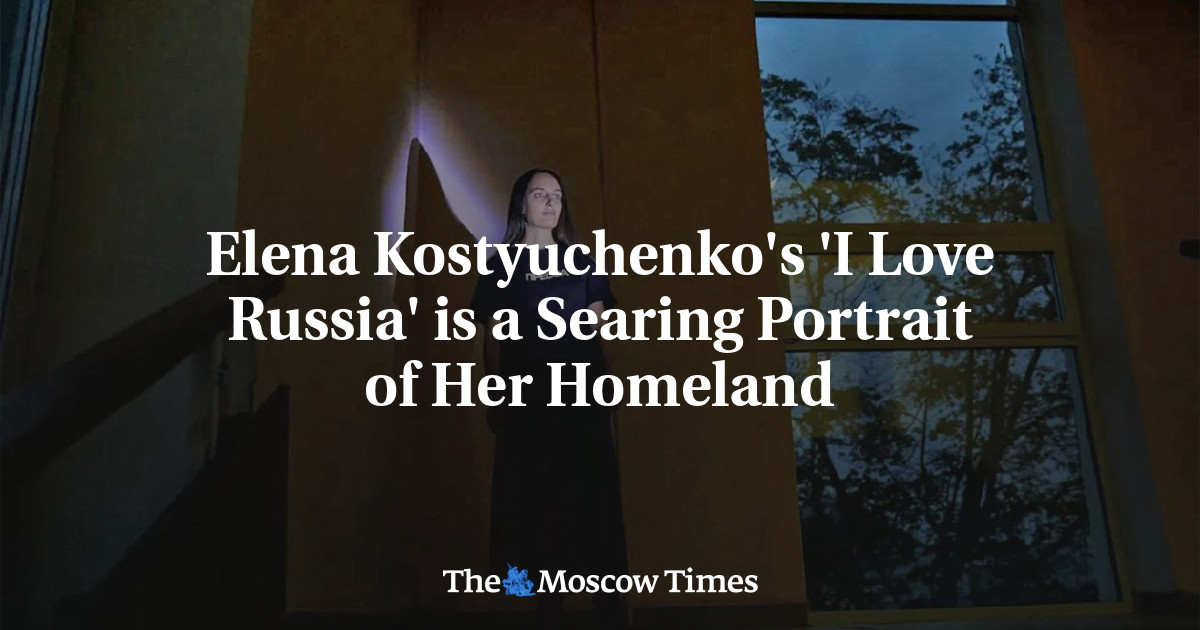
After living for two weeks in a psycho-neurological internat, a facility where Russia confines those with psychiatric illnesses and no relatives willing to care for them, journalist Elena Kostyuchenko believed she had seen the “real face of my state.”
Inside the institution, she speaks to women who have been forcibly sterilized, shows a doctor poetry written by a patient in an attempt to demonstrate that the patient is not in the “vegetative” state their medical records claim, and watches female residents as they scramble for their daily allocation of cigarettes.
“When human connection is lost, all that is left is the state,” Kostyuchenko writes. “My state is the internat. Not the Sputnik V vaccine, not the Olympics, not space shuttles.”
Kostyuchenko’s account of her stay in the internat provides the material for just one of the chapters in her memoir-cum-essay collection titled “I Love Russia,” which has been elegantly translated by Ilona Yazhbin Chavasse and Bela Shayevich.
The many other topics explored by Kostyuchenko include rural poverty, environmental disaster, prostitution, high suicide rates blighting Russia’s ethnic minorities, homophobia, terrorism, and, perhaps most graphically, the war in Ukraine.
But the bigger question that lurks in “I Love Russia” is why Kostyuchenko’s homeland has descended into full-blown authoritarianism – she calls it “fascism” – and launched such a terrible war on neighboring Ukraine.
In 17 years working at the independent Novaya Gazeta, Kostyuchenko has had a ringside seat to witness this transformation.
She has reported many times on the growing power of the state, the Kremlin’s indifference to human life, and the brutality it shows to perceived enemies. And, as a gay woman, she has herself been on the receiving end of violence when she was assaulted at LGBTQ rights protests in Moscow.
Seven of her colleagues have been murdered for their journalism. As a cub reporter, Kostyuchenko left apples on the desk of her idol, crusading journalist Anna Politkovskaya, who was assassinated in 2006.
Kostyuchenko has been unable to return to Russia since she left the country in 2022 to travel to Ukraine to report on the full-scale invasion. But even in exile in Germany, she has not been safe. She was likely the victim of an attempted poisoning last year that left her unable to work for many months.
Throughout “I Love Russia,” Kostyuchenko focuses not on explaining, but on chronicling the dark heart of President Vladimir Putin’s Russia. It is a task she accomplishes in unflinching, gut-wrenching detail. What she writes about, she says, are “terrifying things.”
In one chapter, the reader meets a 17-year-old prostitute, Laila, working on the outskirts of Moscow, who says she can have sex with 17 men in one night. In another, Kostyuchenko sees the bodies of two sisters in a morgue in Ukrainian city Mykolaiv. They were killed by Russian shelling. “The younger girl is three years old and lies on top of her sister,” she writes. “Her jaw has been tied shut with gauze, her hands tied together to rest on her stomach. Little red wounds from shrapnel cover her body.”
Reading “I Love Russia” can, at times, be confusing as it jumps forward and back in time, mixing long-form articles first published in Novaya Gazeta with chapters of memoir about Kostyuchenko’s own life – growing up, coming out, buying an apartment, arguing with her mother.
And Kostyuchenko uses a tone of wistful, almost childish innocence that some readers might find grating. In one passage she describes the Kremlin as “so red and sweet, [that] you want to lick it.” In another, on the eve of the full-scale invasion of Ukraine, she tells the reader: “I sleep and have very vivid dreams. They’re too vivid, it’s almost painful, but also so beautiful.”
Perhaps the strongest part of the book is Kostyuchenko’s depiction of the remote communities in Russia’s regions where she does most of her reporting – and the contrast she draws with comfortable and affluent Moscow.
“It was really scary out there, beyond the [Moscow] ring road,” she writes. “Life was threadbare.”
While Kostyuchenko might not offer too much in the way of analysis of why her country has embraced “fascism,” her evocation of Russia’s poor, forgotten and violence-ridden communities outside the major cities offer some big clues.
“What do I think after two weeks in the [internat]?” she asks at the end of her chapter on the men and women confined to the unidentified institution.
“That I have only scratched the surface of hell.”
For more information about the author, book and where to purchase it, see the publisher’s site here.





